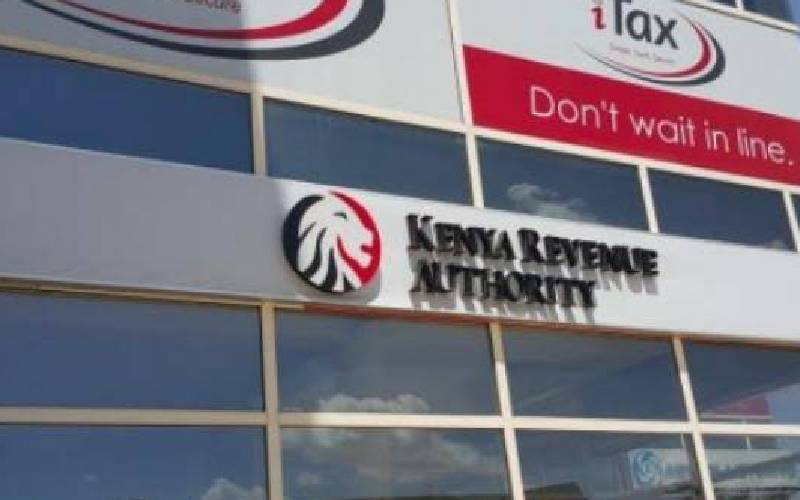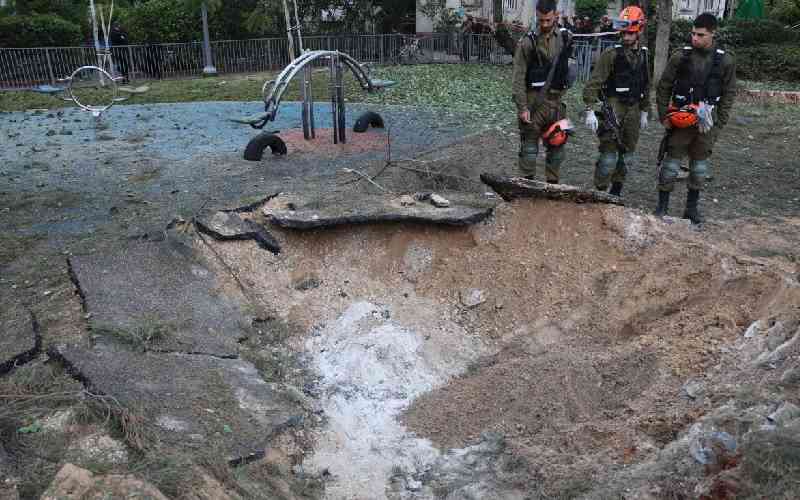
One year in, there's a growing sense that the Ruto presidency is yet to bring the economic crisis under control. An administration that pledged to ease the economic burden on Kenyans seems to be increasing it, some experts reckon.
Kenya's inflation rose marginally in September after all sectors recorded a general increase in prices, the Kenya National Bureau of Statistics (KNBS) said on Friday.
The cost of living measure rose to 6.8 per cent in September from 6.7 per cent a month earlier.
Last week, economists from a government think tank asked the Ruto administration to beef up social security and invest heavily in food production to deal with the high cost of living.
The Kenya Institute for Public Policy Research and Analysis (Kippra) said in a new report published on September 28 that Kenyans, especially low-income earners, are hurting and the State must move with speed to cushion them.
Kippra, in the Kenya Economic Report 2023, noted that households are spending 54.3 per cent of their income on food and this goes up significantly for low-income households, spending more than 60 per cent of their money on food.
The cost, the think tank noted, reduces access to adequate food in terms of quantity and quality.
Additionally, poor households are forced to cut back on spending on other essential items such as health, sanitation, clean water and education.
"This pushes them into poverty and makes them more susceptible to poor health and malnutrition," said Kippra.
Now the spotlight is shifting to Ruto's top moneymen and a host of elite advisors whom the President relies on to make crucial decisions.
They include National Treasury Cabinet Secretary Njuguna Ndung'u and Central Bank of Kenya (CBK) Governor Kamau Thugge.
The duo is expected to work closely to steer the economy through rising inflation, a depreciating shilling and a heavy debt burden.
The team was faced with the uphill task of helping the Ruto administration stabilise government finances and bring surging living costs under control.
But according to Mbui Wagacha, a former senior economic advisor to President Uhuru Kenyatta and former chairman of the Central Bank of Kenya (CBK), the two economic managers of the Kenya Kwanza administration are presiding over a "broken macroeconomic policy framework" that is benefiting the rich and hurting the poor - the opposite of its famed bottom-up policy.
Stay informed. Subscribe to our newsletter
Policy distortion
Dr Wagacha, who has over the years consulted for a number of governments and multilateral institutions, said that the economic managers of the Ruto administration have to change their way of doing things.
"There is distortion from the fiscal side and the monetary policy side...The fiscal and monetary policy mix is wrong and is destroying the economy," he told Financial Standard in an interview.
He cited the recently proposed plethora of personal income and household taxes, which he said had condemned the country's poor deeper into abject poverty and that corporates had been treated with kid gloves in terms of taxation.
"You need elaborate fiscal reform in order to create a society where there are opportunities for everyone. If you let off corporations from paying taxes but put your foot down on households even investors are not able to invest because there is no demand," he said.
"When you have a fiscal system that supports oligarchs you are denying investors that want to enter the market an opportunity to invest as there is no demand."
Citing CBK's recent rate hikes ostensibly to cool off inflation, Wagacha said CBK was using monetary policy to enable government access lending from the domestic market and not to assist the real economy.
"As a result of these, the economy is contracting and this is increasing poverty," he said, alluding to the recently rolled out Budget Review and Outlook Paper by the National Treasury which showed massive cutbacks in economic activity.
Prof Ndung'u and Dr Thugge are among a group of economists and experienced technocrats appointed by President Ruto to help steer the battered economy and implement the bottom-up economic model touted by the Kenya Kwanza administration as the panacea to the country's economic woes.
They work alongside presidential advisors such as David Ndii, chairperson of the President's Council of Economic Advisors that includes Mohammed Hassan and Nancy Laibuni, and Augustine Cheruiyot, Senior Advisor and Head of Economic Transformation Secretariat.
They are part of a "dream team" of advisors who are called upon to help the new administration fulfil its pledges to create jobs and improve incomes.

"East African countries are grappling with the effects of these headwinds at a time when we should be consolidating policy actions to accelerate structural transformation to promote inclusive growth and build resilience across different sectors."
He said regional countries are also grappling with a growing debt burden, and disruptions to production and supply chains due to global shocks, which are elevating poverty rates and inequality.
The government has been forced to seek help from the World Bank and the International Monetary Fund (IMF) amid a deteriorating cash flow situation marked by falling revenues and worsening debt service obligations.
It is betting on these multi-billion-shilling economic support packages to stabilise its finances.
Avert debt default
The bailouts are tipped to help the government avert a debt default and economic collapse, amidst the persisting political and economic uncertainty, according to analysts.
But the conditional deals include strict austerity plans, including a controversial public sector pay freeze and increased taxes on fuel and key commodities.
Kippra in its report made a raft of recommendations that it said would reduce the cost of food and see the economy back on a firm footing.
These included investments in agriculture and sectors such as manufacturing that are intertwined with agriculture.
The government should also look into the plight of working Kenyans whose earnings have been eroded by multiple factors and align minimum wage with prevailing economic conditions, and also ensure compliance to minimum wage in the informal sector.
"To enhance macroeconomic stability to support strong growth and reduce the cost of living (there is a need to) accelerate investments in the agriculture sector for strong growth and stable food prices," said Kippra.
"This includes enhancing affordable inputs, upscaling irrigated agriculture and adopting climate smart practices. This will revamp the sector's resilience to weather-related shocks and provide fresh impetus for agriculture sector growth."
The institute added that the country needed to also work on agricultural inputs such as fertiliser production as well as support manufacturers that process agricultural produce and improve roads that lead to farms.
 The Standard Group Plc is a
multi-media organization with investments in media platforms spanning newspaper
print operations, television, radio broadcasting, digital and online services. The
Standard Group is recognized as a leading multi-media house in Kenya with a key
influence in matters of national and international interest.
The Standard Group Plc is a
multi-media organization with investments in media platforms spanning newspaper
print operations, television, radio broadcasting, digital and online services. The
Standard Group is recognized as a leading multi-media house in Kenya with a key
influence in matters of national and international interest.
 The Standard Group Plc is a
multi-media organization with investments in media platforms spanning newspaper
print operations, television, radio broadcasting, digital and online services. The
Standard Group is recognized as a leading multi-media house in Kenya with a key
influence in matters of national and international interest.
The Standard Group Plc is a
multi-media organization with investments in media platforms spanning newspaper
print operations, television, radio broadcasting, digital and online services. The
Standard Group is recognized as a leading multi-media house in Kenya with a key
influence in matters of national and international interest.






